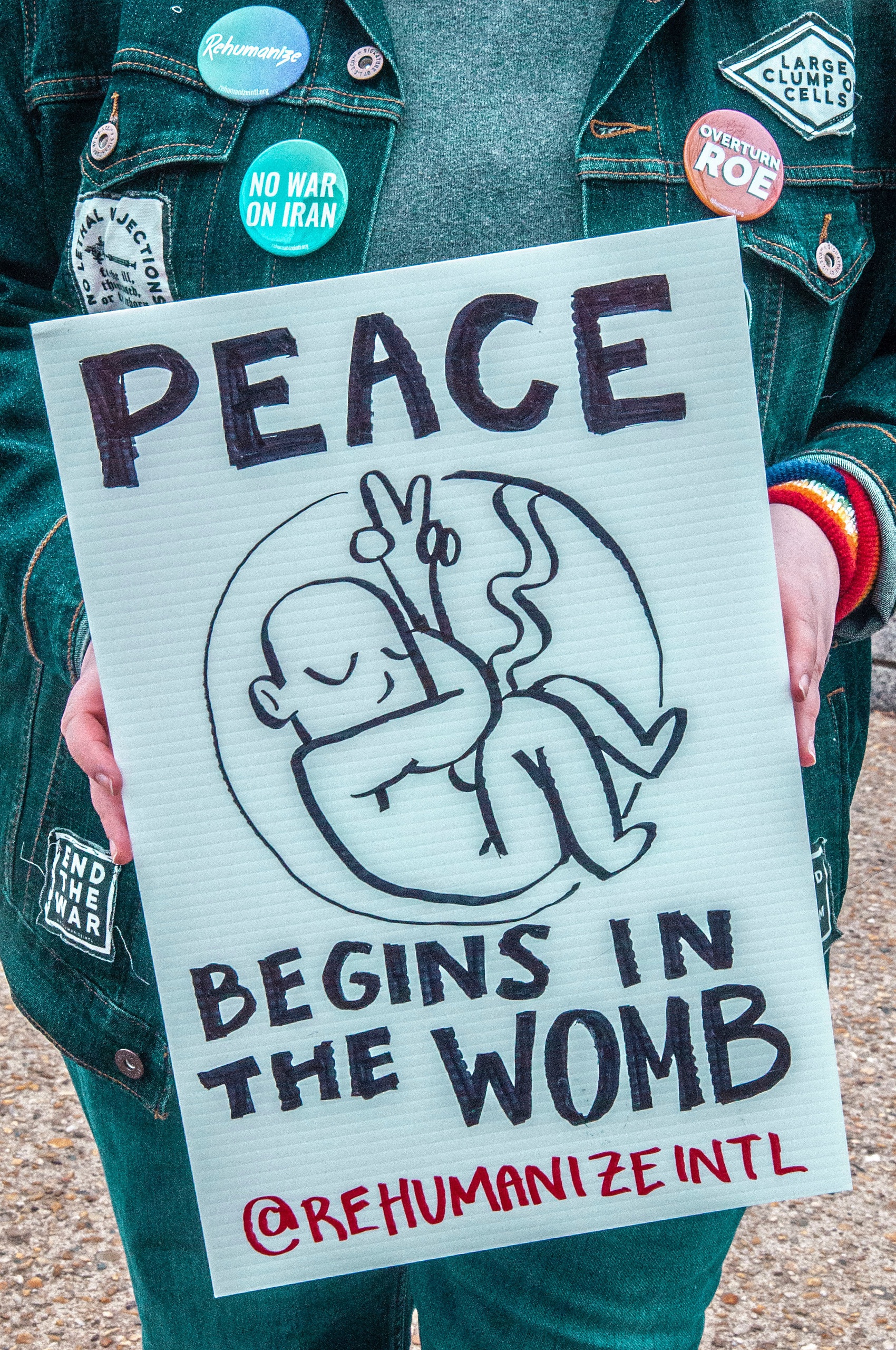On the 22nd of October, upon application lodged by 119 Members of Parliament,[1] the Polish Constitutional Tribunal (“CT”) delivered a judgment declaring a provision of the 1993 Act on abortion unconstitutional, and thus void.[2] The provision in question, Article 4a(1)(2), states that termination of pregnancy may be performed if prenatal testing or other medical assessment indicates a high risk of severe and irreversible foetal impairment or an incurable illness constituting a threat to the foetus’ life.[3] Abortion remains legal in two other instances, namely, a threat to the health or life of the pregnant woman, and pregnancy as a result of rape.[4]
The legal issues before the CT were, first, the question about the legal status of a foetus as a subject, and second, the permissibility of abortion, which is understood as the balancing of rights in the event of a conflict of values.[5] The unconstitutionality of Article 4a(1)(2) of the Act is based on “Article 38 in conjunction with Article 30 in conjunction with Article 31(3) of the Constitution.”[6] The provisions refer to the protection of life, dignity, and the grounds for limitations of constitutional freedoms and rights.[7] In its reasoning, the CT appealed to the idea of human life as a value in all of its stages of development, and the dignity of an unborn child, including the duty of the legal system to uphold this right. Moreover, the mere fact of a foetal defect, notwithstanding the “possible discomfort of life” of a child born with such, cannot on its own determine the permissibility of abortion.[8]
Arguably, the CT weighed the rights of the foetus and the pregnant woman in a way that did not consider the implications of the birth of a child with a severe defect. The statement that such a child would possibly endure discomfort is an understatement in certain circumstances. This raises the following questions. Can the CT make such an assumption considering the grave consequences of its judgment? Did it consider the matter sufficiently?
What followed the ruling were, first, a wave of anti-government protests, and, second, a reminder that some judges of the CT had been appointed unconstitutionally, effectively making the current judgment unlawful.[9] The ongoing protests have attracted attention in the form of vigorous support and fierce opposition. On the one hand, an appeal to women’s rights is invoked, and on the other – pro-life arguments and the Covid-19 prevention measures. The government sides with the latter, essentially using the situation to turn voters against the protesters. However, a poll conducted between the 26th and 27th of October shows a significant decrease in support for the ruling Law and Justice party.[10] Is it time for the government to change its strategy for dealing with the situation? A concession is advised, not least due to the infringement on women’s rights.
The CT’s ruling is based on, inter alia, Article 38 of the Constitution, which ensures the protection of life.[11] As the Polish constitutional lawyer Ryszard Piotrkowski has remarked, “The essence [of the Constitution] is to give freedom, not to take it away.”[12] This point seems to serve as a valuable addition to the protesters’ arguments. As to the opposing side, the government stands firm on its continued intention to crack down on the protesters, who are in fact violating coronavirus restrictions by participating in large public gatherings.[13]
It has been suggested that a way of remedying the situation is for the Parliament to alter the relevant provision in such a way as to ensure its compliance with the judgment, while at the same time keep abortion legal in the event of foetal impairment.[14] The former would ensure that the required legal procedure is kept, while the latter would protect basic women’s rights, and, as a relief for the government, could reduce the number of protests. However, the ruling party’s plans are clear: there will be no change of the Act, as there is no reason to clarify the judgment, which is compliant with the Constitution.[15] Therefore, it seems that the ruling party intends to allow the protests to continue in order to further accuse the organisers and participants of violating the coronavirus restrictions, and keep up voters’ support.
The ruling on abortion is surrounded by issues such as political circumstances and motivations, the independence of the judiciary, and the overarching Covid-19 pandemic. Various stakeholders in the ongoing dispute are raising their voices; however, what is undisputed are the concrete consequences of the law on individuals – those who will be directly affected by the change.
[1] OKO.press, ‘Lista hańby. Oto posłowie PiS i Konfederacji, którzy doprowadzili do zakazu aborcji w Polsce’ (22 October 2020)
[2] Constitutional Tribunal, Judgment, K 1/20 (22 October 2020)
[3] Act of 7 January 1993 on Family Planning, the Protection of Foetuses, and Grounds for Permitting the Termination of a Pregnancy (Dz. U. 1993 nr 17 poz. 78)
[4] ibid arts 4a(1)(1), (3).
[5] Constitutional Tribunal, Press release after the hearing, K 1/20 (22 October 2020)
[6] Constitutional Tribunal, Judgment (n 2).
[7] The Constitution of the Republic of Poland (2 April 1997)
[8] Constitutional Tribunal, Press release (n 5).
[9] Human Rights Watch, ‘Poland’s Constitutional Tribunal Rolls Back Reproductive Rights’ (22 October 2020)
[10] OKO.press, ‘Ależ tąpnięcie! PiS w sondażu Kantar najniżej od 6 lat, KO z mocnym Hołownią mogliby stworzyć rząd’ (28 October 2020)
[11] Constitution of Poland (n 6) art 38.
[12] Gazeta Prawna, ‘Prof. Piotrowski: Trybunał nie rozumie konstytucji [WYWIAD]’ (30 October 2020)
[13] BBC, ‘Poland abortion: Top court bans almost all terminations’ (23 October)
[14] Prawo.pl, ‘Prof. Zoll: Wyroku nie publikować, natychmiast zmienić ustawę’ (26 October 2020)
[15] Prawo.pl, ‘Aborcyjny wyrok TK wejdzie w życie, nie będzie zmian w ustawie’ (27 October 2020)







